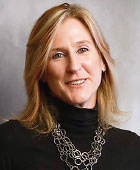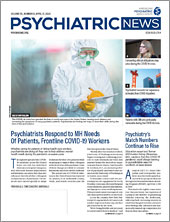Monday
It is my first ER shift since COVID-19 hit our county. Millie, an illiterate 90-year-old farmhand, sits comfortably nearby. The chart says, “Took scooter to casino—stroke—impaired judgment.” Despite her dense hemiparesis, Millie had dragged herself to her electric scooter on her good arm and fled her nursing home to downtown in the dark of night, where she hit the slots at three casinos before someone called the sheriff. “Why, Millie?” I yell. She has no hearing aid.
Four patients with a cough, fever, and hypoxia share the common area with her, all people with chronic mental illness and heavy alcoholism who had been living together at a local shelter and came in for help with “scabies and detox.” They hack all over the nurses who have coated them with permethin. Two of them are clearly sick, either in early DTs, pneumonia, or a COVID-19 sweat, and will not keep their masks on. It’s trial by fire: I had spent the whole prior weekend reading COVID-19 science and protocols, and none of them considered how to self-quarantine four homeless psychotic patients with substance use disorder with lifelong noncompliance.
Tuesday
My two patients with the worst trauma histories are least anxious. One lost five of seven sibs to violent death and knows how to manage continuous traumatic stress. The other, with dissociative identity disorder, brings me things because the “little ones” are concerned to keep me healthy and happy. “Change always comes suddenly when it comes,” she says. She keeps a stocked pantry and a sleeping bag in the car always, having moved 17 times by the age of 8.
Others are too anxious to leave the home even if they were allowed. Agoraphobic, perfectionistic, paranoid, obsessive, with interpersonal histories that make it difficult to trust others will act to protect them, they cannot tolerate the uncertainty of other people and are enraged by those who cough. One, with OCD and separation anxiety, skipped his medications rather than go to the pharmacy and is deteriorating: cleaning and calling his parents compulsively to tell them to stay inside.
Wednesday
I have another chance with Millie, who has been readmitted with fever to rule out COVID-19. One of the original Monday four is intubated in the ICU, her test pending. It turns out Millie dislikes the skilled nursing facility director, and when he said they would all be “locked down” together, she had a panic attack and the urge to flee. Now she is locked in a small room. “Name three things you can do for boredom,” I yell while doing a phone consult on a patient because I am not yet fitted for personal protective equipment. “There’s only TV in here,” she yells back.
In clinic, an older man with ADHD and COPD is so hyperkinetic and distracted that he touches his face and office surfaces at least 20 times during the visit. None of my patients can define “exponential.”
Thursday
Three patients can’t get medications; they are on back order. Five are calling for more benzos after upping their use. A pharmacist has destabilized his bipolar disorder by working 65 hours filling orders. Two women with a diagnosis of borderline personality disorder are struggling with urges to self-harm with the severe disappointment of canceled new jobs and licensing exams that represented their recovery. I am tense with countertransference to a patient who exploited the down market and lose my temper at the lack of social distancing on our locked units.
Friday
Both Millie and the person who was intubated rule out. Millie is septic from a UTI resulting from her wild ride, and the ICU patient has strep pneumonia. Another telephone consult to the COVID-19 unit. Jim, who is pressured and too jolly for a man with several lung resections and COPD, tells me God and Jesus anointed him as a new prophet yesterday and gave him telepathic healing. “Are you Southern?” “No, I’m channeling.” He switches accents a few times, finally to an “Indian guru.” “I will heal everyone here,” he says, offering me some healing too.
Saturday
Time to reflect. I am so grateful for what I have learned from my patients this week—they have taught me how the impulsivity, anxiety, substance use, medical and cognitive morbidity, paranoid and manic delusions, and socioeconomic difficulties of those with mental illness will severely challenge their ability to respond to this global crisis.
Psychiatry must use our collective voice with our policymakers and our patients to find ways to slow COVID-19 that takes mental illness into account. Please send your strategies to
[email protected]. ■
Editor’s note: Confidentiality has been preserved through use of composites and modification of detail.

